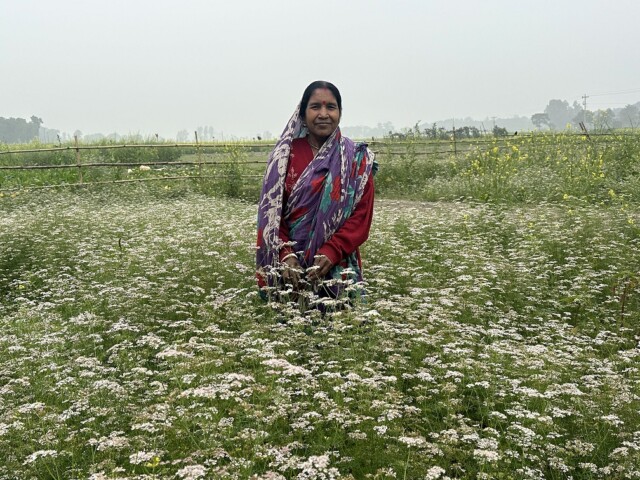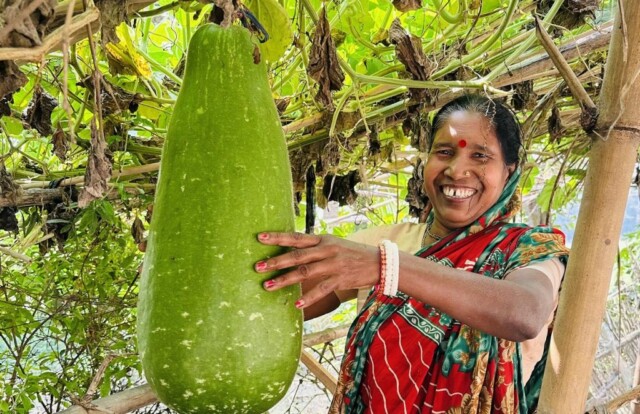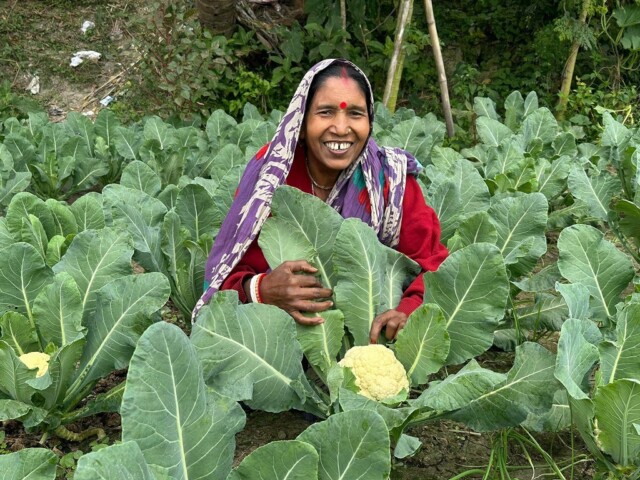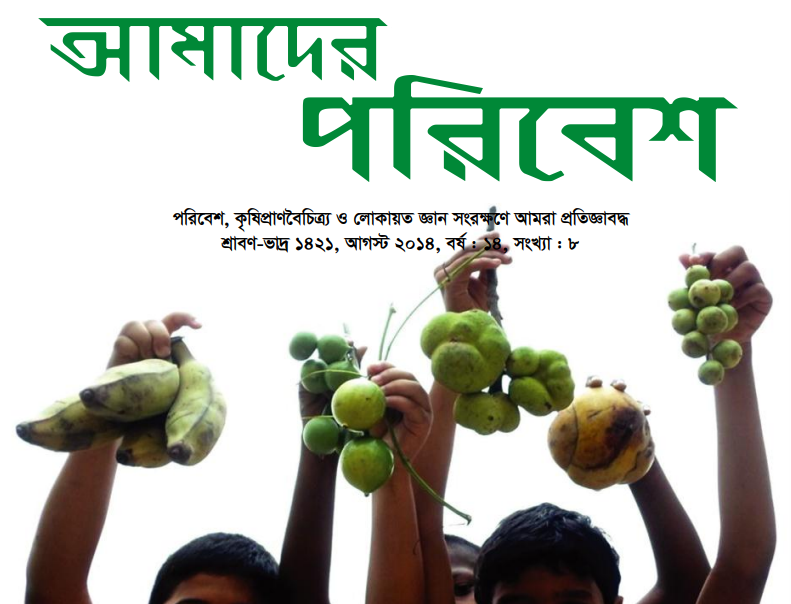Annaya Akhter from Manikgonj
Soil, water and air are very important elements for farmers to grow foods and we are lead sound and healthy life consuming those foods. Bangladesh is an agrarian country and a mentionable numbers of its population in rural areas are involved in agriculture earning their livelihoods. These farmers produce diversified foods in their lands to feed the whole nation. It has been seen over the years that the farming communities share good interdependent relationship with each other in the rural areas. They exchange seeds, crops, grains, materials as well as experiences and knowledge with each other through practicing sustainable agriculture. However, the advent of modern and energy intensive agriculture has contributed in lessening their interdependent relationship due to the agriculture links them with markets for chemical agriculture, seeds and pesticides. The chemical and energy intensive agriculture does not only damage farming communities’ interdependent relationship but also depletes the soil, contaminates water & soil and pollutes the air. But in spite of these damages done by the modern agriculture there are still few farmers and farming communities who still practices sustainable agriculture using the indigenous knowledge that keeps the nature and air fresh, makes the soil healthy and conserves the biodiversity. Renubala Majumder of Atkoria village in Manikgonj is one of the farmers who practices sustainable agriculture.

Renubala has 5 members family who are all involved in agriculture. She has been cultivating rice and other diverse crops in her lands with the supports of her family members including her husband. She has learned farming technique from her mother and still applies these indigenous techniques in farming crops and rice. She never uses chemical fertilizers, market seeds and pesticides in her lands. Renubala said, ‘I have been using my indigenous knowledge in crop cultivations which I inherited from my ancestors. My way of farming crops may seem conventional to others but I have been benefited practicing this indigenous knowledge based agriculture which does not harm the nature and biodiversity.’ She went on saying, ‘Today most of the farmers has reduced the use of chemical fertilizers, pesticides, and market seeds experiencing crops loss and higher production cost. They know try to return back to the ancient agriculture practices.
Renubala came in touch of BARCIK in 2021 participating in different trainings and capacity building arranged by the organization of agroecology, climate change adaptation, resilience building and sustainable agriculture. Participating in those capacity building training Renubala further enriched her understanding and knowledge on nature based cultivation which she has been practicing for years she mentioned. She, ‘I learn that we should not contaminated water and soil while producing foods. And farmers should keep their seeds in their own hands.’

Renubala further said, ‘If we contaminate the soil how will be able to produce crops? Therefore, I have been practicing such nature based agricultural practices which always keep the soil healthy, enrich agrobiodiversity and keeps the nature fresh and healthy.’ I learnt and enriched my understanding on agroecology, climate change and other important issues on food production system participating in the events and training arranged by BARCIK. Now I understand very well how chemical fertilizers and pesticides create negative impacts on soil by killing benevolent insects, contaminates and pollutes water and air.’
According to Renubala, seed is the very strength of farmers. Thus, farmers should conserve seeds and keep them in their control. She said, ‘We should not buy seeds from the market. The markets will be the place where we will sell our agricultural produces; not a place of buying seeds and fertilizers.’ However, today most of farmers depend on markets for seeds and fertilizers. They buy these inputs with higher price which increases their production cost. Renubala said, ‘We have damaged the fertility of our soil by using these chemical fertilizers and pesticides. We should stop using these external inputs to be benefited from agriculture.’

Renubala cultivates rice, jute, mustard, wax gourd, sweet gourd, cauliflower, gourd, ladies finger and bindweed including some spices in her homestead garden and cultivable land through the year. She sells the surplus vegetable and crops in the markets after meeting her family needs.
Renubala said that if farmers get fair price of their crops they will be motivated to practice environment friendly agriculture. She said, ‘We should increase the cultivation of diverse crops to maximize the proper use of our arable lands. If we try to lessen our dependence on market seeds, fertilizers and pesticides we will be benefited from agriculture along keeping the nature and environment fresh and alive.’
Translated by Silvanus Lamin


